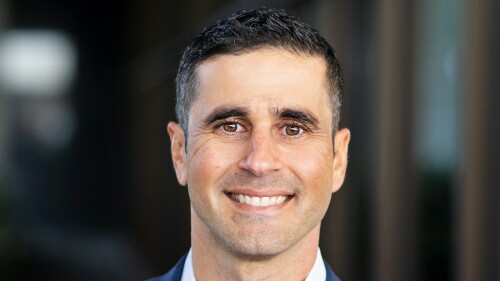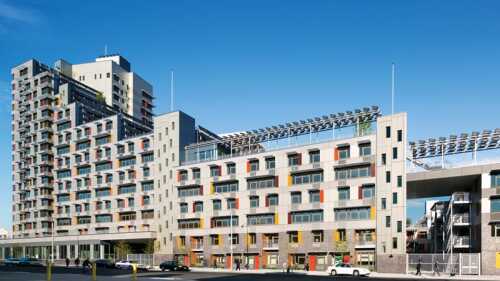Officials leading the expansion of some of Europe’s fastest-growing urban areas say residential schemes that offer green space and promote sustainable transport are crucial to their smart-cities programs.
Representatives of Vienna, Stockholm, and London said at the ULI Europe Annual Conference in Paris in early February that they need solutions from the real estate industry that offer both high-density living and access to green space, recreational facilities, and fresh air.
“Healthy cities are about accessibility—connecting public spaces, parks, and green spaces to one another,” said Maria Vassilakou, Vienna’s deputy mayor and executive city councilor for urban planning, traffic, and transport. “A healthy place is one where people can enjoy life, and if they enjoy life, then they use their feet.
Vassilakou said Vienna is seeking to avoid the “suburbanization that forced citizens into long commutes and a high dependency on cars” as it plans for 120,000 new homes in the next decade. “We are working closely with developers on this. You have to build new sites where people want to walk and cycle,” she said.
“We believe we can build high-density homes but which are of a high quality,” she added. “Our vision is to put high density in the outer parts [of a project] and create large green areas in the center that are open to everyone.” The city has land available on former military and hospital sites for new projects, she said.
The Austrian capital has won international praise in recent years for its living standards. The Mercer Quality of Living survey ranked Vienna as the best city four times in a row between 2009 and 2012. Most recently, U.S. climate strategist Boyd Cohen anointed Vienna the “smartest city on the planet” in the Smart Cities Index.
“We want to connect all the [natural] spaces throughout Vienna so that wherever people want to go, they can get there along green space,” said Vassilakou.
A plan to reduce car use in the city to 20 percent of trips by 2025 was behind last summer’s controversial pedestrianization of Europe’s longest shopping street, Mariahilfer Strasse. Car-free zones, kiss-and-ride areas, and speed limits for bus lanes were introduced to the roadway during a major redesign.
As part of the changes on the street, parking is no longer allowed, Vassilakou said. “Not everyone will win as the result of a pedestrianization,” she noted. “I am deeply convinced that as cities get more dense, the role of public space is even more important. We need to remodel the public realm so that it isn’t only representative and beautiful, but usable.
The new-look Mariahilfer Strasse and its sustainable transport initiative are part of the Smart City Wien, a roadmap for improving environmental and social performance as Vienna prepares for 2 million inhabitants in 2035, up from 1.8 million today.
The vision, launched in 2011, has kick-started the development of Urban Lakeside, a new 590-acre (240 ha) district of 10,500 homes and 20,000 workspaces. “We need to provide people with the opportunity to work in the open if they want—walk on the grass and let their children out to play in the heart of the city,” she said.
Access to green space is just as crucial for Stockholm, which in 2010 was designated by the European Commission as the first European Green Capital. “When you are in the city today, you are never more than 300 meters [984 feet] from green space or water. That is an important idea for us,” said Staffan Ingvarsson, the vice chief executive of Stockholm.
He said the Swedish capital—where one-third of all weekday trips are made by foot—wants to continue making the most of what he termed its “green and blue” heritage.
Stockholm, one of the fastest-growing cities in western Europe, needs 140,000 new homes by 2030 and is seeking private sector solutions to address the needs of the fastest-growing population in western Europe, he said.
Green space is also a priority for Londoners, said Sir Edward Lister, chief of staff and deputy mayor, policy and planning, at the Greater London Authority (GLA). “One of the crucial indicators for quality of life in the city is green space,” he said. “London is already a green city, and in policy terms, we’re improving the quality of parks and engaged in an enormous tree planting initiative.
GLA is also taking a hard-line approach to car use, he said, noting that the new Heron Tower, a 40-story skyscraper in the City of London, has only six parking spaces. “We are not creating parking, but cycle spaces,” he said. “We’re trying to drive people onto public transport, bikes, or encourage them to walk.”
Ingvarsson said he is confident that Stockholm will find the new, green solutions it is seeking from the real estate community.
“In the last five years, we have seen a huge change in the industry. Developers used to say, ‘We can’t do this, it’s too expensive.’ But now, technology has changed so much that green initiatives are seen as a selling point. The costs of implementing them in schemes are now lower, too,” he said. “We have had a really interesting conversation with the real estate industry about this in recent years.”





